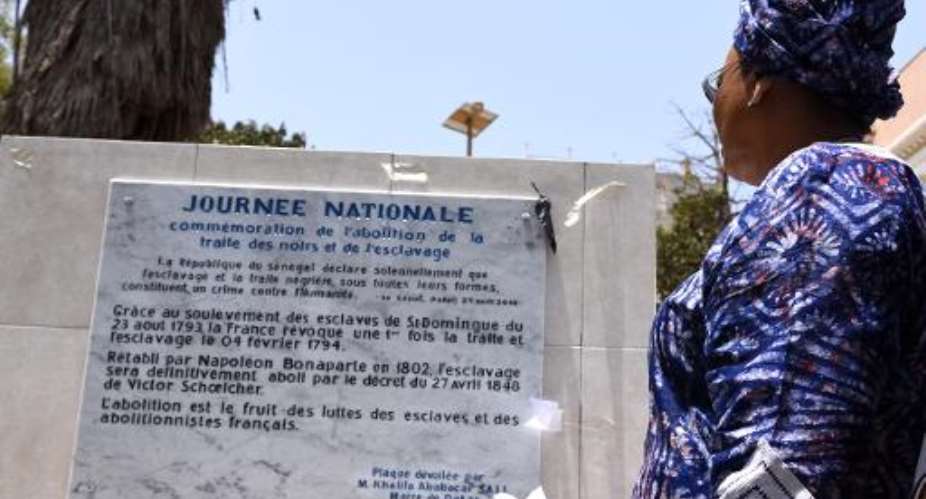Dakar (AFP) - Senegal gathered diplomats representing nations across the world on Monday to commemorate the abolition of the slave trade at a ceremony in the capital Dakar.
"The youth of today has the right to know the story of their ancestors who resisted slavery," city hall official Soham Wardini told guests at the unveiling of a marble plaque.
Chinese ambassador Xia Huang and diplomats from the French, American, Belgian and Malian embassies joined students in applauding the memorial, which marks "the struggles of slaves and French abolitionists".
The ceremony marked the first official National Day of Remembrance for the Resistance to Trafficking and Slavery, which coincides with the date of abolition in the French colonies in 1848.
Previous unofficial commemorations have been held on Goree Island, an important transit point for the Atlantic slave trade, four kilometres (over two miles) off Dakar.
Goree processed many of the estimated 12 million Africans who over three centuries crossed the Atlantic Ocean bound in chains, their lives and liberty traded in the US slave market.
The cramped cells of the island's House of Slaves -- built by the Dutch in 1776 -- was the reputed last exit for thousands of manacled Africans destined for the New World.
Senegal, a former French colony, became the first African country to adopt legislation outlawing the slave trade as recently as 2010.





 We’ll protect state wealth from opaque deals – Prof Jane Naana
We’ll protect state wealth from opaque deals – Prof Jane Naana
 Mauritania president says running for second term in June polls
Mauritania president says running for second term in June polls
 I won't ever say I was a mere driver’s mate' — Prof. Opoku-Agyemang
I won't ever say I was a mere driver’s mate' — Prof. Opoku-Agyemang
 2024 polls: 'EC struggling to defend credibility'— Prof. Opoku-Agyemang
2024 polls: 'EC struggling to defend credibility'— Prof. Opoku-Agyemang
 Akufo-Addo gov't's 'greed, unbridled arrogance, unrestrained impunity, sheer dis...
Akufo-Addo gov't's 'greed, unbridled arrogance, unrestrained impunity, sheer dis...
 Election 2024: Ghana needs an urgent reset, a leadership that is inspiring – Ma...
Election 2024: Ghana needs an urgent reset, a leadership that is inspiring – Ma...
 Partner NDC to rollout a future of limitless prospects – Prof Jane Naana Opoku-A...
Partner NDC to rollout a future of limitless prospects – Prof Jane Naana Opoku-A...
 NPP will remain in gov’t till Jesus comes — Diana Asamoah
NPP will remain in gov’t till Jesus comes — Diana Asamoah
 Sunyani Technical University demands apology from former SRC president over sex-...
Sunyani Technical University demands apology from former SRC president over sex-...
 'Dumsor' was resolved by Mahama but ‘incompetent' Akufo-Addo has destroyed the g...
'Dumsor' was resolved by Mahama but ‘incompetent' Akufo-Addo has destroyed the g...
